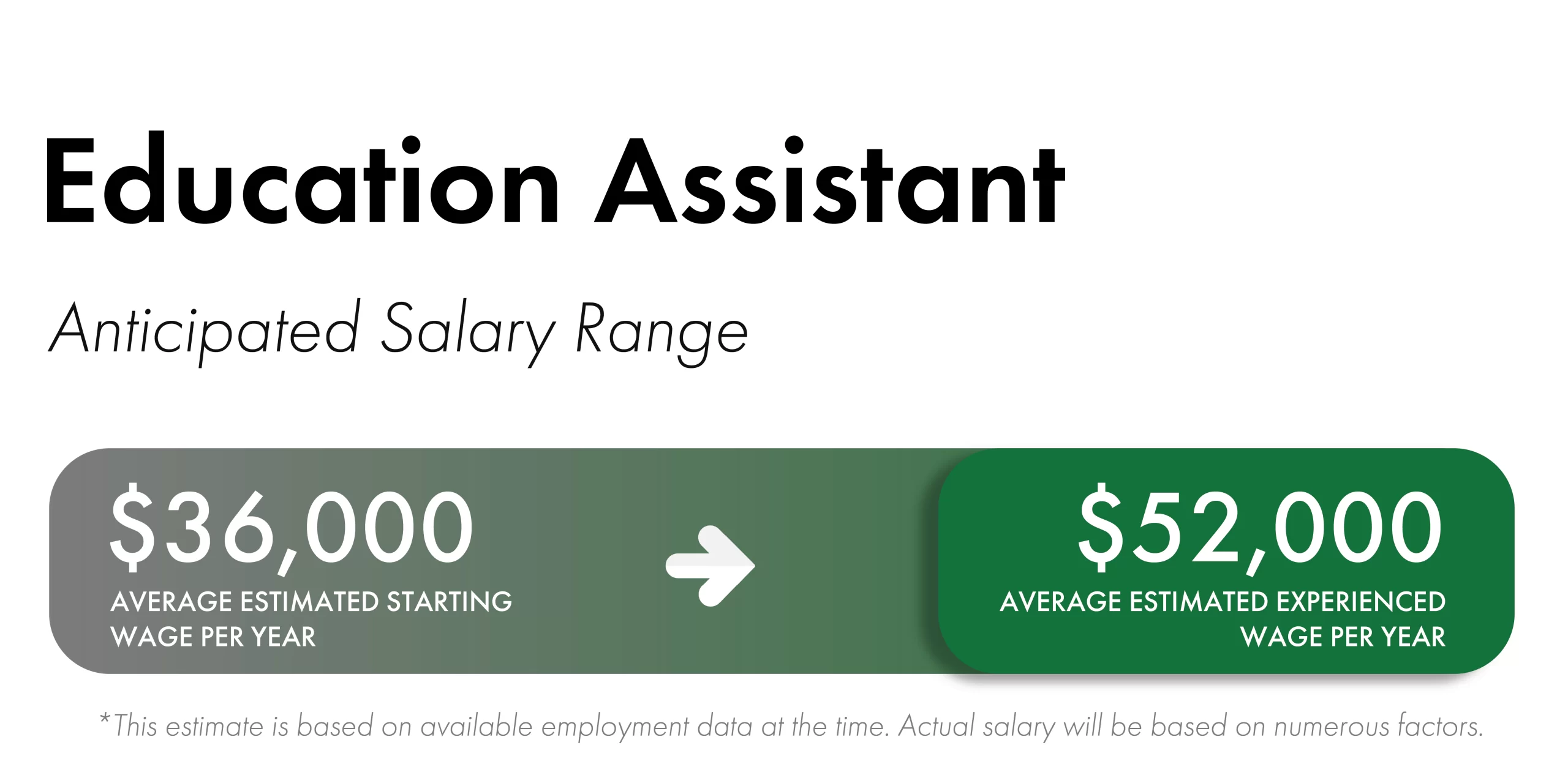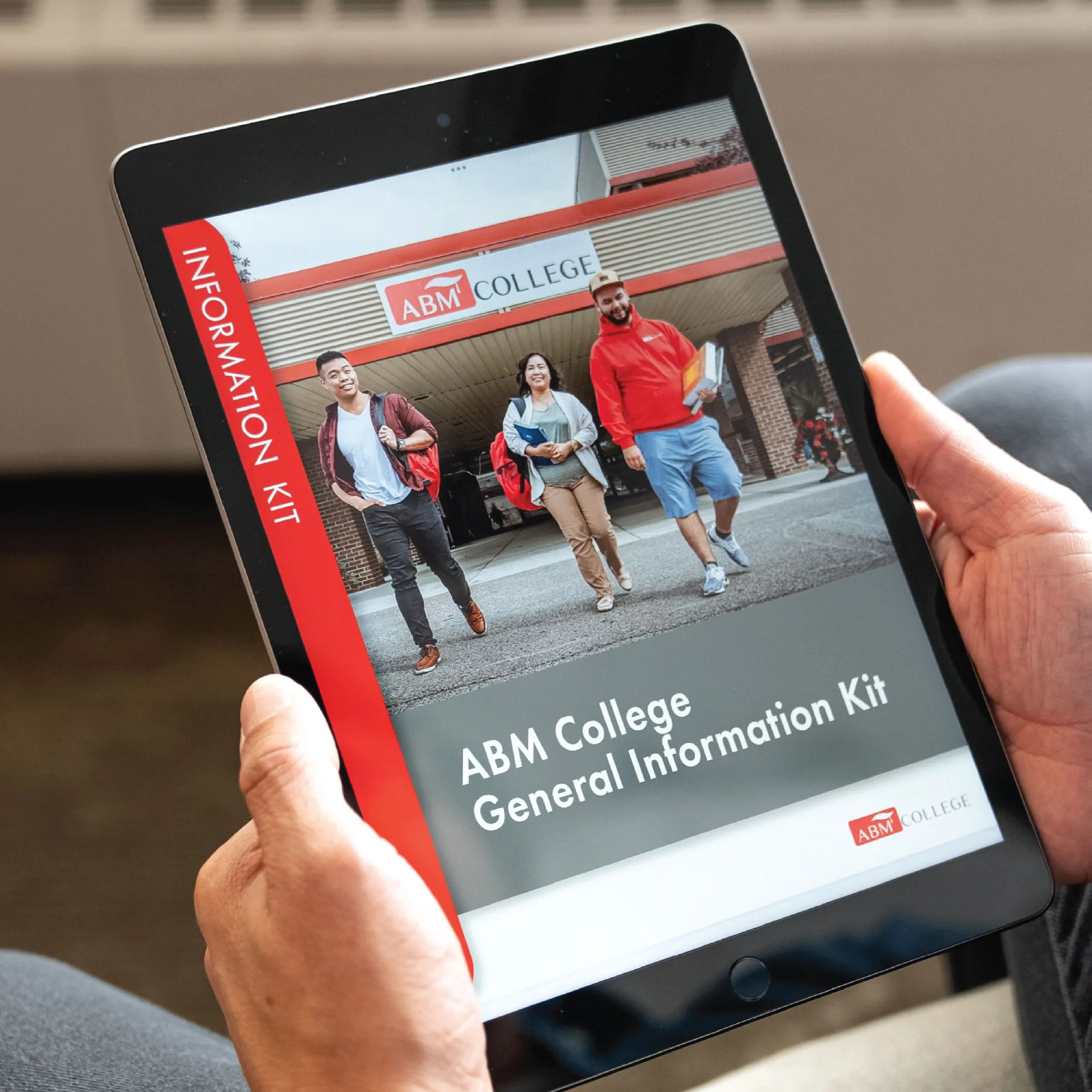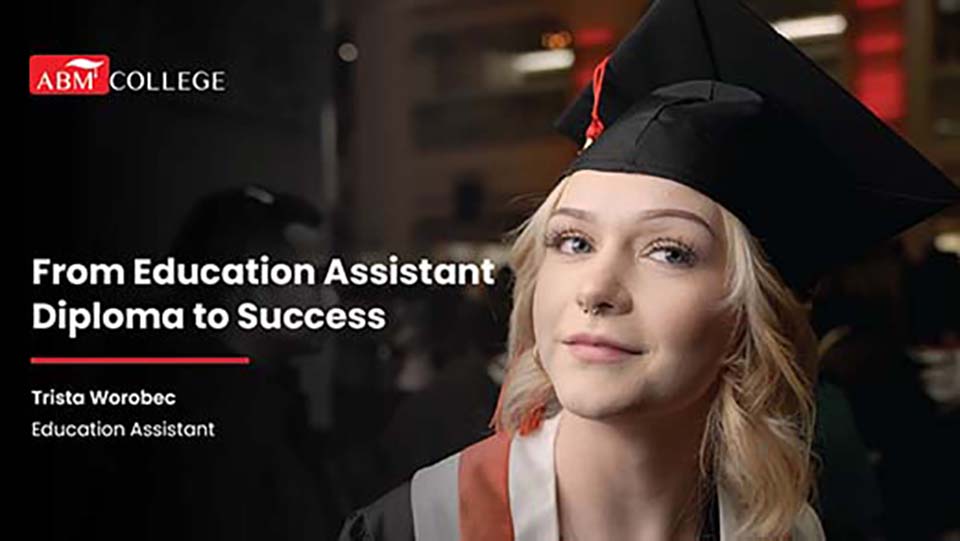Education Assistant Diploma Online Program
Delivery Method
Online, In-person or Hybrid
Program Duration
53 Weeks Total
Practicum Duration
4 Weeks
Program Schedule
Morning, Evening or Weekend
Next Start Dates
Education Assistant
Diploma Summary
Launch your career in education with ABM College’s 13-month online Education Assistant Diploma. This flexible, 100% online program prepares students to support children's cognitive, social, emotional, physical, and language development from early childhood through adolescence. As an Education Assistant, you have the flexibility to work in both schools and daycares. This role is in demand across various educational settings, supporting students with academic, behavioural, and developmental needs.
You’ll learn practical strategies to respond to diverse student needs, manage risk behaviours, and balance care responsibilities in a safe and supportive way. The curriculum emphasizes reading and writing strategies, parental involvement, and how to foster meaningful language connections in the classroom.
The program also introduces essential numeracy concepts and how to apply them in everyday student learning. Through a hands-on 4-week practicum placement, students gain real-world experience in school or childcare settings, putting their training into action. A capstone career prep course helps students polish their resumes and build confidence when entering the job market, guided by one-on-one support from a professional career counsellor.
Education Assistant
Course Highlights
- Study online with a schedule that seamlessly aligns with your home, work, and other commitments.
- Students will be focussing on the characteristics of exceptional learners and their education.
- On completion, students will develop an understanding of the strengths and needs of individuals with severe disabilities.
- This program helps you kickstart your career to get you working faster.
- Equip students with the necessary skills and knowledge to meet the industry demands and trends.
Career Opportunities
According to the Canadian Job Bank, future job prospects for Education Assistants over the next three years are high across the country. Graduates of our Education Assistant Diploma Online Program are prepared for roles such as:
- Education Assistant
- Instructional Assistant
- Program/Teacher's Aide
- Special Education Assistant
Salary Range
The anticipated salary range for Education Assistants across Canada is $36,000 to $52,000 based on experience. At the Calgary Board of Education (CBE), the current pay scale for Education Assistants ranges from $24.00 to $31.82 per hour, depending on experience and qualifications. According to the Canadian Job Bank, across the country, hourly wages range between $17.15/hr and $30.76/hr, with a median rate of $24.36/hr. Ontario, New Brunswick, and Newfoundland are at the higher end of the scale.

Education Assistant Diploma Information Kit

This kit includes important details on the Education Assistant Diploma program at ABM College.
Education Assistant Information Kit
"*" indicates required fields
Course Curriculum
Admissions Requirements

Why Study Education Assistant Online at ABM College?
- Learn on Your Schedule – Balance your studies with work or family responsibilities.
- Access from Anywhere – Study from any location in Canada with an internet connection.
- Class Recordings Available – Rewatch sessions anytime to review complex topics.
- No Commute Required – Save time and money by learning from home.
- Collaborative Online Learning – Engage with instructors and classmates in real time.
Frequently Asked Questions
What Education Assistant Diploma Graduates Say About ABM College



